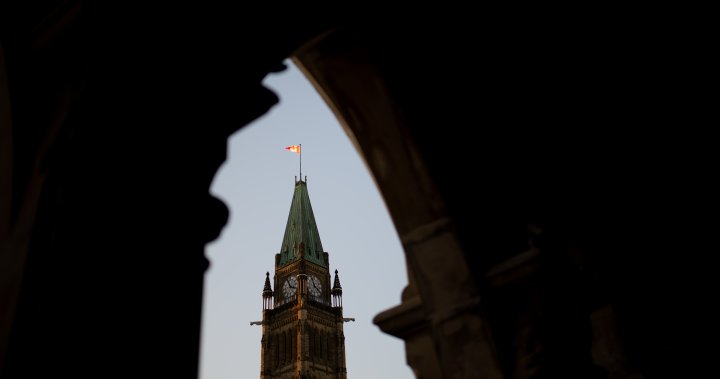Amid a chill in relations with both of Asia’s heavyweights, regional experts say it’s time Ottawa warms up to Southeast Asia, arguing Canada has an edge as a middle power with large institutional investors.
The call comes after years of strain with Beijing, which included the detention of two Canadians in China for more than 1,000 days, and more-recent tensions with India after Ottawa accused its government of complicity in a British Columbia homicide.
“We’re in a bit of a bind; that’s for sure,” said Wayne Farmer, who leads the Canada-ASEAN Business Council.
“It could be a bit of a mixed blessing.”
Next month, Trade Minister Mary Ng is leading a trade mission to Malaysia and Vietnam, with another planned later this year for Indonesia and the Philippines.
The trips are part of Canada’s efforts to boost commerce with most of the 10 countries that make up the Association of Southeast Asian Nations.
The ASEAN bloc and Canada have pledged to conclude a trade agreement by the end of 2025, and Indonesia has also agreed to have a deal signed with Canada this calendar year.

It’s all part of Canada’s Indo-Pacific strategy, which the Liberals released in late 2022 in an effort to sow closer ties with countries in Asia other than China, deeming Beijing to be a disruptive power that undermines Canadian interests.
Last month, China and Canada both said they’re hoping to work more together, but there are serious differences in how they see relations getting back on track.
The strategy envisioned doubling down on ties with Japan and South Korea while putting an emphasis on tighter links with India.
But relations with New Delhi hit a deep chill over India’s alleged involvement in the assassination of a Canadian Sikh leader last year.
New Delhi temporarily froze visa applications for Canadians, and Ottawa recalled more than 40 diplomats after India threatened to strip them of diplomatic immunity.
With Canada at odds with both giants, Farmer said now is the time to ramp up economic links with Southeast Asia.
Get the latest National news.
Sent to your email, every day.
“There are only so many resources that Canada has, in people and cash,” he said in a recent interview.
“When things start to change a little bit, or thaw with, say, China, or with India, you’d be able to shift back to focusing on those discussions.”

The Asian Development Bank projects relatively strong economic growth in Southeast Asia, at a rate of 4.7 per cent that puts countries in the region ahead of China, though behind the boom India is currently experiencing.
Dewi Fortuna Anwar, a professor at Indonesia’s National Research and Innovation Agency, said Canada has a strong brand across the region, due in large part to past development projects.
But its engagement in Southeast Asia has been intermittent, she said.
“Canada has never been away, but the perception is that it has not been as visible in the past few years,” she told a recent panel.
“The ASEAN region will be very welcoming to Canada trying to play an active role again.”
Canada is poised to benefit economically through the trade agreements and missions Ottawa is leading, Farmer said.
But he said Canada might come up short in profiting from an infrastructure boom in a region that is hungry for financing to build bridges, ports and roads, often through private-public partnerships.

The Indo-Pacific strategy earmarks $750 million for Ottawa to make such investments, which Farmer describes as a meagre amount.
“You have to commit significant dollars. But it doesn’t all have to come from government,” he said.
Last fall, the Alberta Investment Management Corp. opened its first Asian office in Singapore, where the Ontario Teachers’ Pension Plan and the Quebec Deposit and Investment Fund already have offices.
Farmer said Canada’s largest institutional investors could expand in countries such as Vietnam, Indonesia and the Philippines, particularly if Ottawa offers to absorb investor risks through agencies like Export Development Canada.
“Helping to de-risk and encourage those investors to innovate in viable projects there — that’s just as helpful as us cutting a cheque from our limited government budgets,” he said.
Farmer said Canada could also export liquefied natural gas to countries that still use oil and coal as energy sources, like the Philippines and Singapore.
That would likely require an expansion beyond Canada’s first LNG export terminal, which is nearing completion in British Columbia and is focused on selling gas to Japan and South Korea.
It would also be contingent on Ottawa accepting a “realistic” approach when it comes to countries that are seeking to lift people out of poverty while eventually meeting international climate targets.

In the longer term, he suggested these countries might welcome Canadian nuclear technology, which has the added advantage of relying on reactors powered by forms of uranium that generally can’t be used to create weapons.
A former Canadian ambassador to Vietnam said Ottawa could also find common cause with countries in the region by working together to push back on pressure from more powerful states in trade or supply chains.
“Economic coercion is operating outside of the (rules-based) order, and it’s done by superpowers. And it’s countries in ASEAN who suffer from this — and Canada has suffered from it, both from the United States and from China,” Deanna Horton told a conference hosted by the Institute for Peace and Diplomacy in December.
“Where Canada could play a role is helping to create a rules-based order that benefits not only the superpowers, but everybody else who depends upon them.”
Anwar said her country of Indonesia would welcome “a middle-power coalition” with Canada that would push more powerful countries to respect the rule of law.
At the December conference, the head of the Asia Pacific Foundation of Canada seemed to hint that having the Conservatives signal their intent to maintain the core planks of the Indo-Pacific strategy would help cement relations with countries across the Asia.
“If you were thinking about coming into government and you thought this was generally something you didn’t want to torpedo, it sure would be good to send some positive signals to the rest of the world,” said Jeff Nankivell, president of the think thank, which is largely funded by the federal government.
“We’d really like to see foreign policy being debated more in domestic circles in Canada, because we finally got the attention of some interlocutors in some parts of the Indo-Pacific region. Now that they’re paying attention, I think we need to put our best foot forward.”










